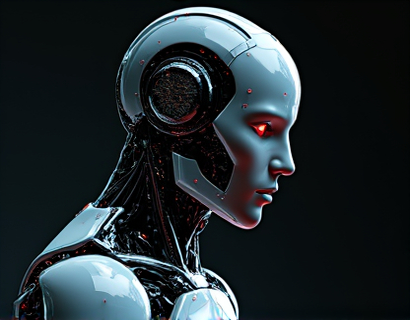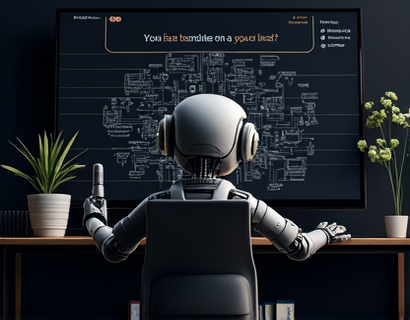Smart Home Elevation: Transforming Living Spaces with Cutting-Edge Appliances
In the rapidly evolving landscape of home technology, the concept of smart home elevation has emerged as a transformative force, redefining the way we interact with our living spaces. This phenomenon involves integrating advanced, intelligent appliances into our homes, creating an environment that is not only more convenient but also more efficient and sustainable. The latest innovations in smart home technology are designed to seamlessly blend into our daily routines, offering unparalleled convenience and enhancing the overall quality of life.
The idea of a smart home is no longer a futuristic dream but a tangible reality for many households. These homes are equipped with a network of interconnected devices that can be controlled and monitored remotely through smartphones, tablets, or voice assistants. The applications of smart home technology extend far beyond simple automation, encompassing energy management, security, health monitoring, and entertainment. This article delves into the latest innovative appliances that are elevating modern living, providing a comprehensive look at how these technologies are reshaping our homes.
Understanding Smart Home Appliances
Smart home appliances are devices that can connect to the internet and be controlled or monitored via a smart device or a web interface. These appliances range from major household items like refrigerators and washing machines to smaller devices such as light bulbs and thermostats. The key feature that distinguishes smart appliances from their traditional counterparts is their ability to communicate and interact with other devices and systems within the home.
One of the primary benefits of smart home appliances is their ability to optimize energy usage. Smart thermostats, for instance, learn your temperature preferences and adjust the heating or cooling systems accordingly, leading to significant energy savings. Similarly, smart lighting systems can automatically adjust brightness based on natural light availability, further reducing energy consumption. These energy-efficient appliances not only lower utility bills but also contribute to a more sustainable living environment.
Smart Refrigerators: The Heart of the Smart Kitchen
The refrigerator, a staple in every kitchen, has undergone a remarkable transformation with the advent of smart technology. Modern smart refrigerators are equipped with features that go beyond temperature control and food storage. These appliances often include high-resolution touchscreens, allowing users to access a wide range of functionalities. For example, you can create shopping lists, manage your grocery inventory, and even order groceries online directly from the fridge's screen.
Another innovative feature is the integration of cameras inside the refrigerator. These cameras allow you to check the contents of your fridge from anywhere, ensuring you don't forget what you need to buy or waste food. Some models also come with built-in speakers and voice assistants, enabling hands-free control and entertainment. Smart refrigerators can also monitor food freshness and suggest recipes based on the ingredients you have on hand, promoting healthier eating habits and reducing food waste.
Smart Washing Machines: Efficiency at Your Fingertips
The washing machine, another essential appliance in every home, has also seen significant advancements in smart technology. Smart washing machines can be controlled and monitored via a smartphone app, allowing you to start, stop, or adjust cycles remotely. This level of control is particularly useful for those with busy schedules, as you can ensure your clothes are ready when you need them.
These appliances often come with sensors that detect the load size and type of fabric, automatically adjusting water and detergent usage for optimal cleaning and energy efficiency. Some models even offer predictive maintenance alerts, notifying you when a part needs replacing, thus preventing breakdowns and extending the machine's lifespan. Additionally, smart washing machines can integrate with home energy management systems to run during off-peak hours, further reducing energy costs.
Smart Lighting: Illuminating Your Life in New Ways
Smart lighting systems have revolutionized the way we control and use light in our homes. These systems consist of LED bulbs that can be connected to a home network and controlled through a smartphone app or voice commands. The versatility of smart lighting extends to customizable color temperatures and brightness levels, allowing you to create the perfect ambiance for any occasion.
One of the most significant advantages of smart lighting is its energy efficiency. LED bulbs consume significantly less power than traditional incandescent bulbs and have a much longer lifespan. Smart lighting systems can also be programmed to turn on and off at specific times, simulating occupancy when you're away, which can enhance home security. Furthermore, these systems can integrate with motion sensors and other smart devices to create automated lighting scenarios, such as turning on lights when you enter a room or dimming them when you watch TV.
Smart Thermostats: Intelligent Climate Control
Smart thermostats are at the forefront of home automation, offering advanced climate control with unparalleled convenience. These devices learn your temperature preferences over time and adjust the heating or cooling systems accordingly, ensuring a comfortable living environment without manual intervention. This learning capability not only enhances comfort but also leads to substantial energy savings.
Many smart thermostats can be controlled remotely via a smartphone app, allowing you to adjust settings even when you're not at home. This feature is particularly useful for optimizing energy usage and preventing unnecessary heating or cooling when the house is empty. Some models also integrate with weather forecasts, adjusting settings based on expected temperature changes to maintain optimal comfort while minimizing energy consumption.
Smart Security Systems: Protecting Your Home with Intelligence
Home security has always been a top priority for homeowners, and smart technology has greatly enhanced the capabilities of security systems. Smart security systems include a range of devices such as cameras, door and window sensors, motion detectors, and smart locks, all of which can be connected and monitored through a central hub or a smartphone app.
These systems offer real-time alerts and notifications, allowing you to stay informed about any activity around your home. High-definition cameras provide clear footage, and some models even include night vision and facial recognition features. Smart locks can be controlled remotely, enabling you to grant access to guests or service providers without the need for physical keys. Additionally, integrating these security devices with smart home ecosystems allows for automated responses, such as turning on lights or sounding alarms when unusual activity is detected.
Smart Speakers and Voice Assistants: The Central Nerve of Smart Homes
Smart speakers and voice assistants have become central hubs in smart homes, serving as the primary interface for controlling various smart devices. These devices use advanced natural language processing to understand and respond to voice commands, making them incredibly user-friendly. Popular models like Amazon Echo and Google Nest Hub offer seamless integration with a wide range of smart appliances, allowing for hands-free control of lighting, temperature, entertainment, and more.
Beyond basic voice commands, these devices can also play music, provide news updates, set reminders, and even control smart home scenes. For example, you can create a "Good Morning" scene that turns on the lights, starts the coffee maker, and adjusts the thermostat with a single voice command. The convenience and versatility of smart speakers and voice assistants make them indispensable in modern smart homes.
Smart Home Integration: Creating a Seamless Living Experience
The true power of smart home technology lies in its ability to integrate various devices and systems into a cohesive ecosystem. This integration ensures that all smart appliances work together harmoniously, creating a seamless and efficient living experience. For instance, a smart home system can automatically adjust the lighting, temperature, and entertainment settings based on your presence and activities.
Centralized control platforms, such as smart home hubs or mobile apps, allow users to manage all connected devices from a single interface. These platforms often support voice commands and can be customized to fit individual preferences and routines. The ability to create automated scenes and routines further enhances the convenience of smart homes, making daily tasks easier and more efficient.
Challenges and Considerations in Smart Home Adoption
While the benefits of smart home technology are undeniable, there are several challenges and considerations that potential adopters should be aware of. One of the primary concerns is privacy and security. Smart devices collect and transmit data, which can be a target for cyberattacks. It is crucial to choose reputable brands that prioritize security and to implement strong password practices and regular software updates.
Another consideration is compatibility. Ensuring that different smart devices from various manufacturers work together seamlessly can be challenging. However, the industry is moving towards more standardized protocols, such as Zigbee and Z-Wave, which facilitate better interoperability. Additionally, the initial cost of smart appliances can be higher than traditional options, but the long-term savings on energy and maintenance often justify the investment.
Conclusion: Embracing the Future of Home Living
The future of home living is undeniably smart, with innovative appliances and technologies continuously pushing the boundaries of convenience, efficiency, and sustainability. By embracing these advancements, homeowners can create living spaces that not only meet their current needs but also adapt to future demands. The latest smart home appliances offer a glimpse into a world where technology and practicality converge, enhancing every aspect of daily life.
As the smart home ecosystem continues to evolve, it is essential to stay informed about new developments and consider the long-term benefits of integrating these technologies into our homes. Whether it's a smart refrigerator that manages your grocery list or a voice assistant that controls your entire home, these innovations are here to make our lives easier, more comfortable, and more connected.










































